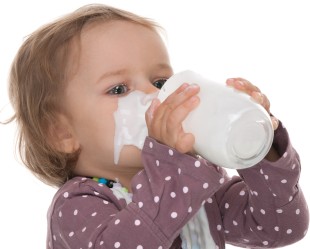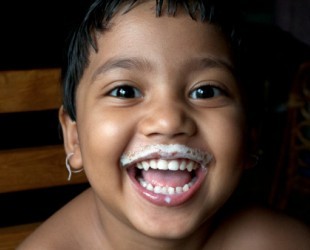Poor or faulty appetite among preschoolers is a common problem that most parents face. Different factors such as physical defect, digestive problems, erratic feeding schedule, faulty diets, and lack of discipline contribute to their disinterest in food.
Parents can address feeding problems with care and proper regimen. Children who do not respond to some of the common feeding strategies may require medical attention.
Common Feeding Concerns and Ideas to Deal with Them
Q: My preschooler hates certain foods, what do I do?
Family meals are a great way to show and teach your child, good values of nutrition. Preschoolers love to imitate their parents. Though this may sound difficult for working parents, make a conscious effort to have a meal together as a family.
Introduce a new food in the family setting and show him how others in the family enjoy the dish.
However, be prepared for his rejection. Have another food that he likes, but never give in to his tantrum to eat processed foods and drinks as meals.
Avoid forcing food, as it will make him averse to the new food.
Make meal times casual and fun time than keeping it formal and authoritative. Share jokes, stories and even have food games!
Devise other ways to offer him the new food after some time, since children normally take time to adjust and accept the new food.
Q: Mealtimes are always a power struggle at my home
Limit his food or snack intake during the day so that he can look forward for mealtimes.
Plan the meal along with him and let him know in advance whenever you want to introduce a new food.
Kids hate surprises especially when they are hungry.
Mental preparation about the taste, texture, smell of the new food helps your preschooler to try the new food.
If possible, involve your child in cutting and preparing the new food.
Q: My child is underweight inspite of giving him wholesome foods
Avoid stressing yourself to provide precise servings of each food group. You should not worry, as long as your child is getting a nutritional and balanced diet.
Food is just one factor that contributes to your child’s weight. A very active child burns calories quickly and needs more food intake.
Your child may be drinking more water making little space for food. Therefore, check his water intake.
Have your child examined for illnesses and deficiency and make appropriate diet amendments.
Add more healthy fats, protein, dairy products to his diet to make him gain weight.
Q: My son always asks for chips and cookies for lunch
Television has a major influence on children with umpteen TV commercials. Foremost, you should restrict TV time and teach him the difference between health and unhealthy foods.
Chocolates, drinks, cookies, cereals advertised on TV are mostly high in sugar, fats and very low in fiber.
Educate him on the undesirable consequences of eating such foods – obesity, behavioral and learning problems.
Checkout other articles in this series:






